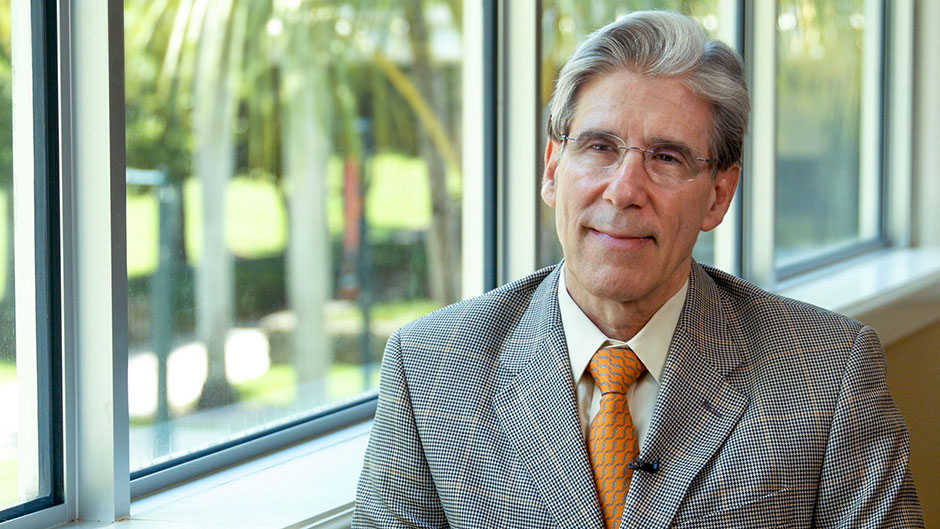When the University of Miami’s newest ’Canes begin arriving on the Coral Gables campus in just a few days, it will mark the first time in 14 years that an incoming freshman class will be welcomed by a new UM president.
Julio Frenk, the Harvard dean and physician introduced in April as the successor to Donna E. Shalala, takes the reins as the University’s sixth president on August 16, inaugurating an era that undoubtedly has the entire UM community buzzing.
In Frenk, UM is getting a president who shares in the excitement of what the future holds for this institution. During a recent interview with UM News in the second-floor president’s boardroom in the Ashe Administration Building, Frenk shared some of the reasons for that enthusiasm and also addressed a range of other topics—from what made the UM presidency attractive to him to why a global perspective is important to the University.
“A palpable sense of a desire to continue the upward trajectory of the University” is how he described one of the qualities that made the UM presidency irresistible. “During the 14 years of President Shalala’s presidency, the University made enormous progress, and there’s this feeling of upward momentum. I found that very exciting,” explained Frenk, the former dean of faculty at the Harvard T.H. Chan School of Public Health.
Frenk, who becomes UM’s first Hispanic president, also spoke of the institution’s location in a region, Greater Miami, that is the gateway to Latin America and the Caribbean, explaining that the United States needs a great university with a “southward, eastward, and westward orientation embracing the entire globe but that is very focused to a part of the world that is not always as present as I think it should be in the global discourse…I think the University of Miami is uniquely suited to play exactly that role.”
With UM’s 100th birthday only a decade away, “we have now the chance of preparing the University of Miami for its second century, to really use the proximity of the centennial ten years from now to envision what we would like the University to look like in its second century,” said Frenk. “Of course, there are great institutions that have been around for much longer. I find that as an opportunity to learn and also to leapfrog.”
- On the decision of his grandparents to leave Germany and migrate to Mexico.
- Thoughts about leaving Boston and the winter behind.
- Like Donna Shalala, Julio Frenk is also a twin.
He shared his views on diversity, explaining that a variety of cultures, races, and religions improve organizations and institutions, and that such differences should be celebrated, promoted, and used as “an antidote to inequality.”
Frenk noted some of the similarities between himself and Shalala. They both have twin sisters, and both started their UM presidencies at the same age, 61. And like his predecessor, Frenk is a former secretary of health. As Mexico’s minister of health from 2000 to 2006, he reformed that nation’s health system, introducing comprehensive universal health insurance, which expanded access to health care for tens of millions of uninsured Mexicans.
Said Frenk, “The opportunity of having had my experience at Harvard, the opportunity to become president of a university that’s uniquely located close to the part of the world that I come from while connecting to the rest of the world, and then a university that has this upward momentum mentality—that combination proved to be quite irresistible.”

